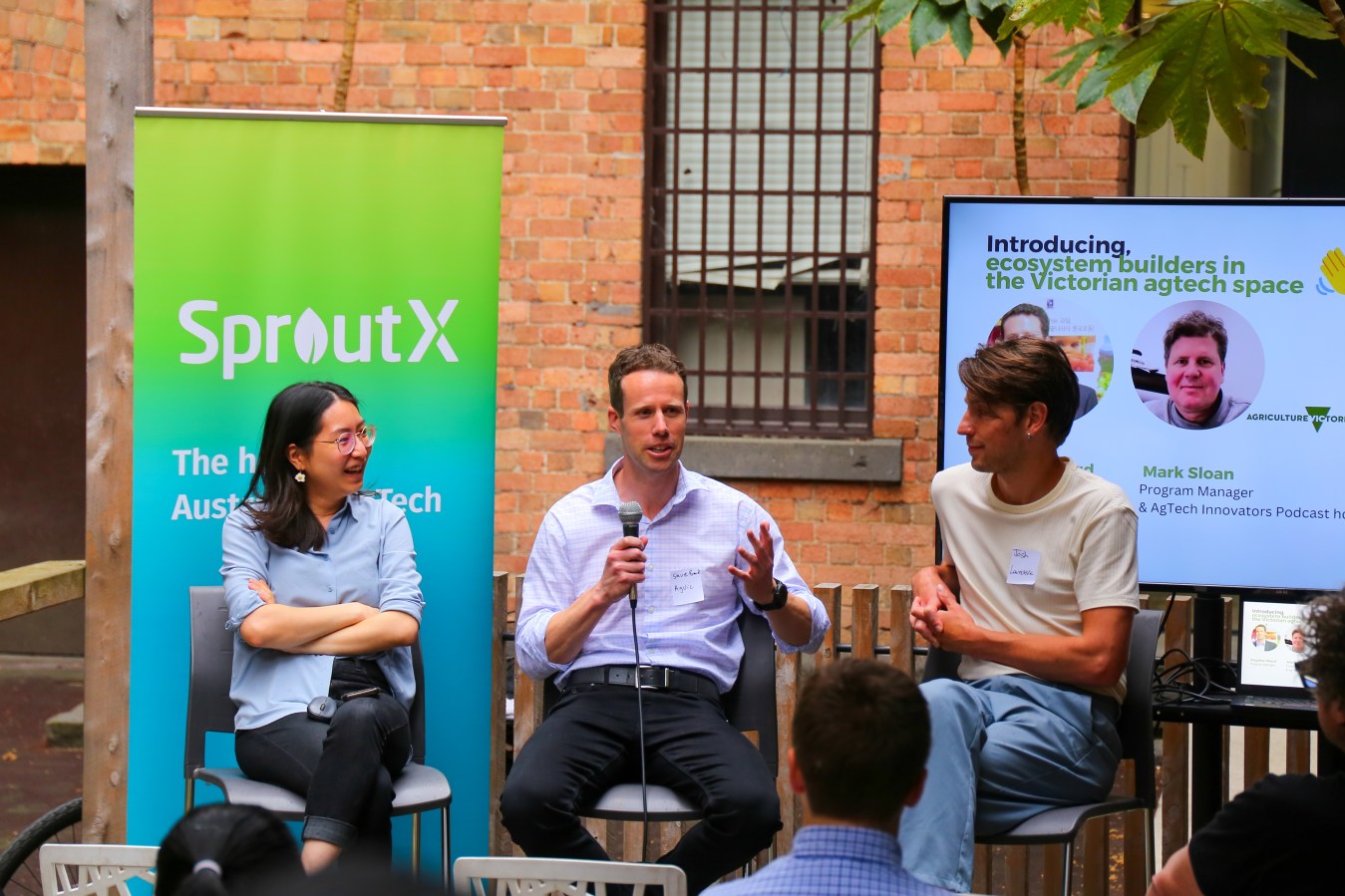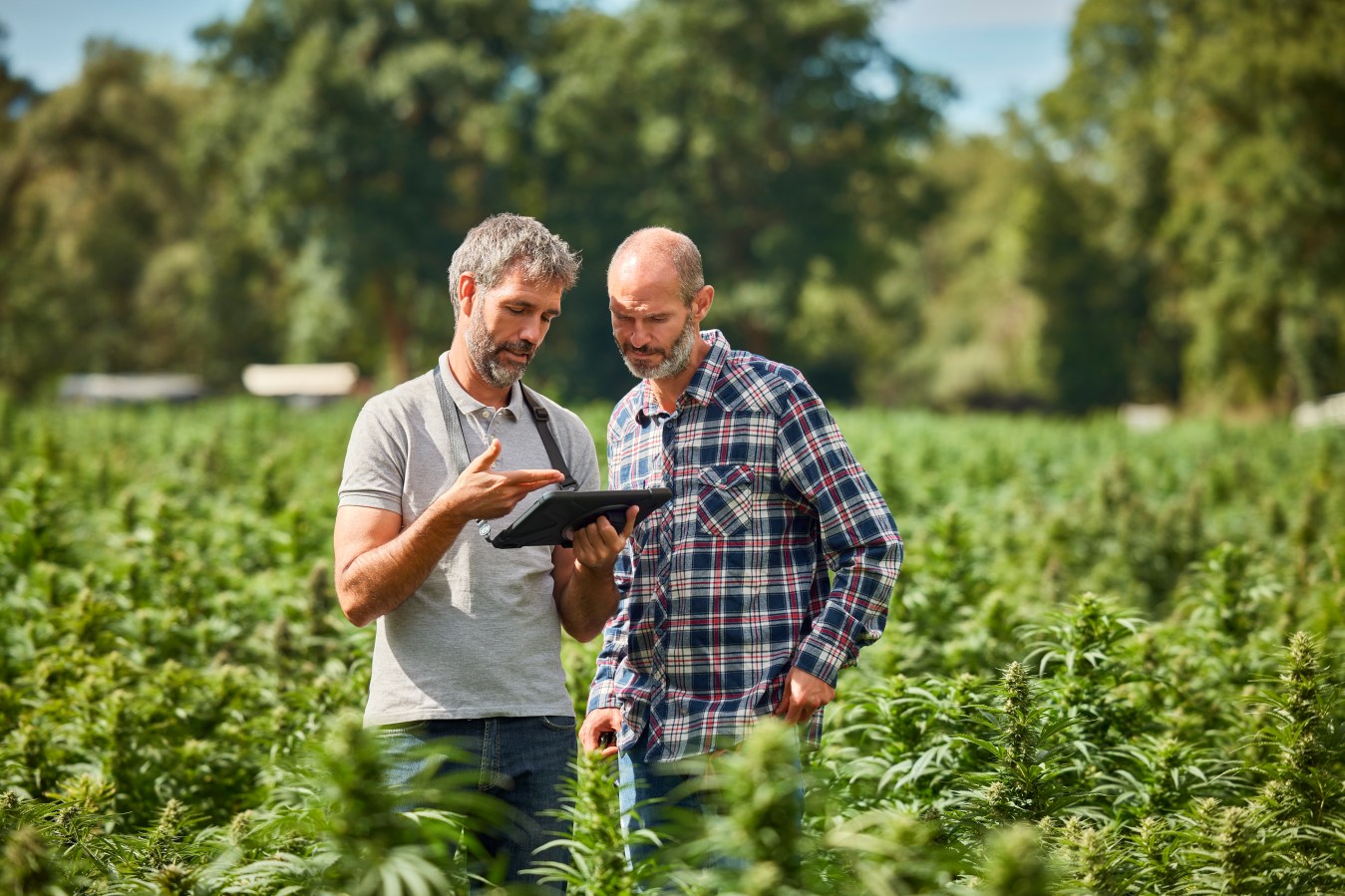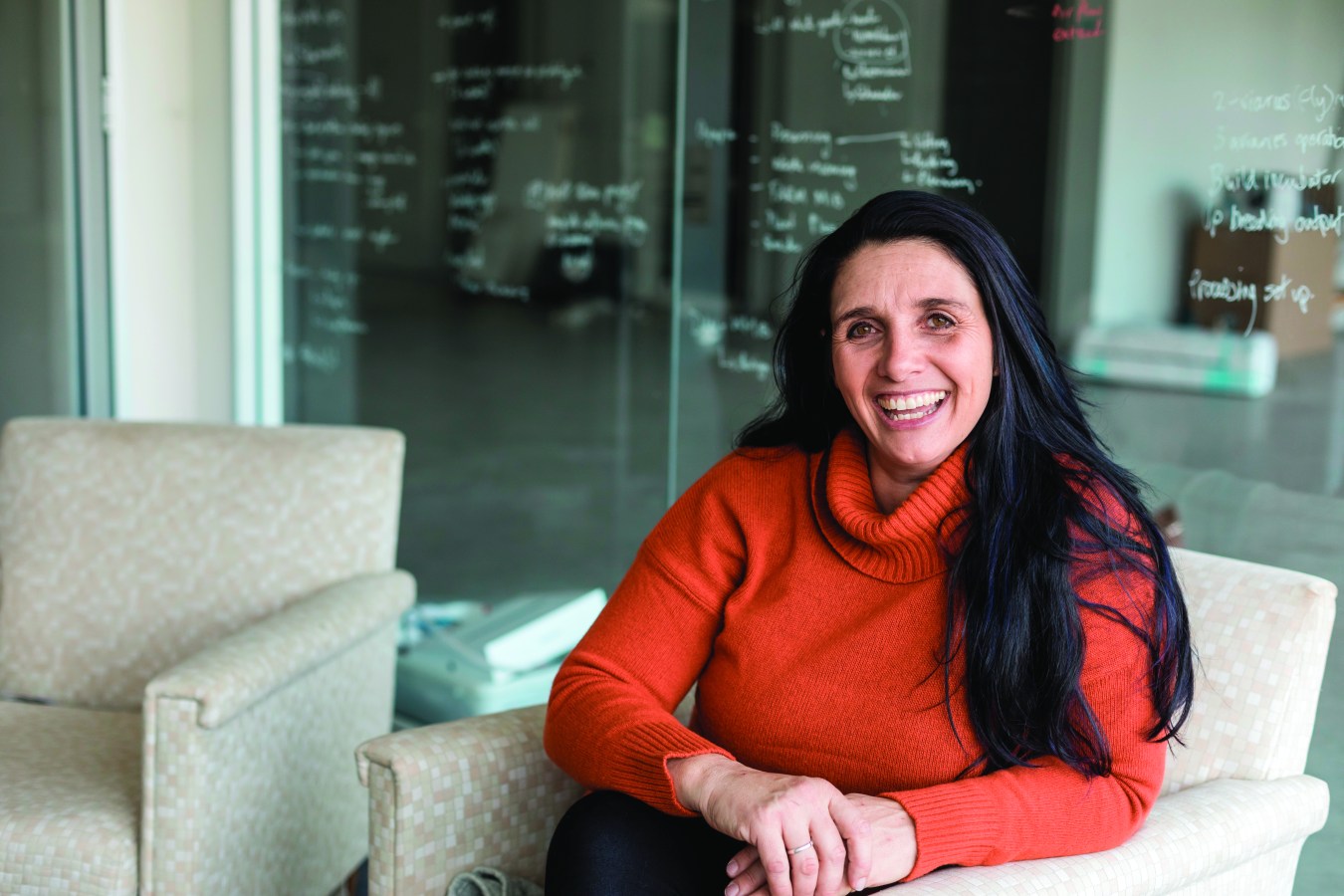Sarah Nolet co-founded Tenacious Ventures, Australia’s first agtech VC fund, in 2018. She talks to Forbes Australia about expanding and exporting our nation’s agricultural expertise, raising a fund in this tough investment environment, and the power of rolling up your sleeves and getting your hands dirty.
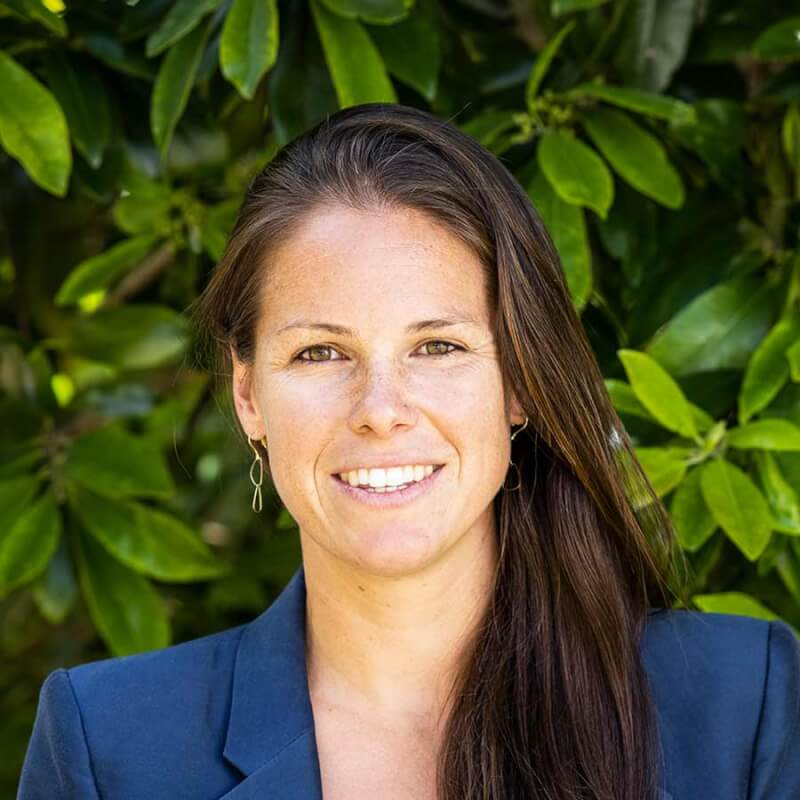
Sarah Nolet was 25 when she went to Mendoza, Argentina to harvest organic tomatoes in the searing summer sun.
“It’s a hot, buggy, itchy, messy, mucky job,” Nolet tells me, on stage at Innovation Bay’s Inspire event in Sydney.
That experience in South American tomato fields was formative for the now 34-year-old venture capitalist.
“It was truly through living on farms during what I call a very accidental gap year, that I got into agtech – which is not exactly a traditional path for someone who grew up in Silicon Valley, and studied systems engineering, and went to MIT.”
Nolet took the lessons learned from the long days working the land and integrated them with the problem-solving, process and technological skills she acquired during her upbringing in the tech capital of the world.
“I was seeing firsthand the potential of technology to completely revolutionise agriculture. Not only to change the economics for producers to align with sustainability credentials for all of us as consumers, but to improve the labour conditions.”
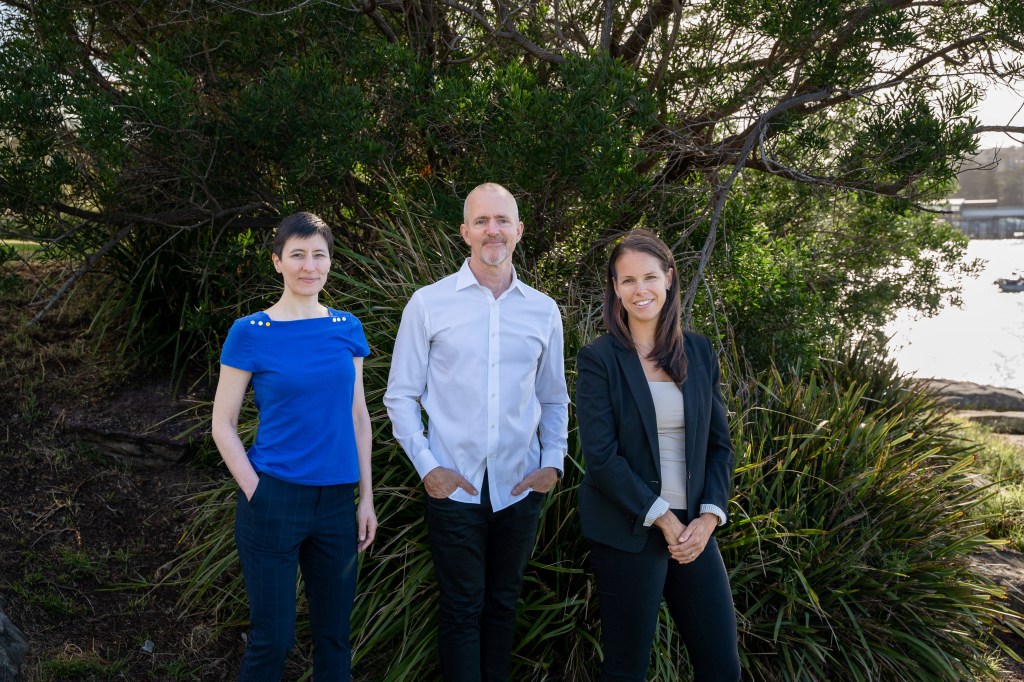
Today, California-born Nolet lives on Sydney’s Northern Beaches and is co-founder of industry-leading agtech VC firm, Tenacious Ventures. She moved to Australia nine years ago.
“My partner was offered a job running HubSpot’s ANZ office. We said, oh, sure, we’ll go live on the beach for a year, that’ll be great. I started talking to a bunch of folks in ag tech. And that taught me quite quickly how amazing Australia is at agriculture,” says Nolet.
The investor saw an opportunity to scale the solutions developed by and for Australian farmers domestically and internationally.
“Why aren’t we commercialising this innovation for the rest of the world?,” Nolet asked herself in 2016. “Because the rest of the world is going to be facing a lot of the climate challenges that Australia has already largely solved in many cases. That eventually led to a conversation saying, maybe we are going to stay in Australia a little bit longer.”
Nolet has great respect for the fighting spirit of Aussie farmers and the agricultural ecosystem that has created a lucrative export industry despite tough conditions.
“We have horrible soils here. We’re the second least subsidised agricultural economy. Yet we export and contribute billions of dollars to the economy. How do we do that? It’s because our research and technology systems have meant our farmers, despite not being subsidised, are incredibly productive,” says Nolet.
Looking forward, the VC says automation will be a key component of making farms more efficient.
“With robotics you can imagine doing things at night when it’s cooler – so that jobs that would otherwise be too hot to do, and unsafe during the day, don’t have to happen at those times. We see a lot of potential for the social element of farming.”
Sarah Nolet
Tenacious Ventures’ co-founder J. Matthew Pryor started the firm with Nolet in 2018. This week, the founders announced an $18 million raise for their second fund.
“To hit first close for our second fund, especially in this economic climate, is a positive signal not only for Tenacious’ investment strategy, but also for Australian ag-tech innovators,” says Nolet.
Investors include Carol Schwartz’ Trawalla Group, Robyn Denholm’s Wollemi Capital Group, Prue Murdoch’s Macdoch, and the Hutcheon and Pearce John Deere dealership.
Tenacious Ventures’ success stories
Since 2021, Tenacious has invested $23 million in agtech startups. Success stories include Swarm Farm which received investment from the fund in 2020. Swarm Farm manufacture robots in Queensland and recently shipped devices to North America. The company is a world leader in agriculture robotics, autonomously managing four-million acres.
Regrow is another portfolio company, focused on satellite and hyper-spectral imaging to help farmers access valuable data on soil moisture, crop disease, and nutrient deficiencies
Vow just gained regulatory approval in Singapore for a cultured meat product. Tenacious invested alongside Square Peg Capital, Blackbird Ventures and Grok Ventures. Based in Sydney, Vow’s business model is based on ‘building a proprietary, technology-enabled library of animal cells.’
Developing alternative and sustainable protein is a specific interest of the Tenacious team. They approach the problem in two ways.
“When we think about sustainable protein, we think kind of one end of the spectrum, what new things could you produce that don’t involve animals? And on the other end, how do you make existing production systems sustainable?” says Nolet.
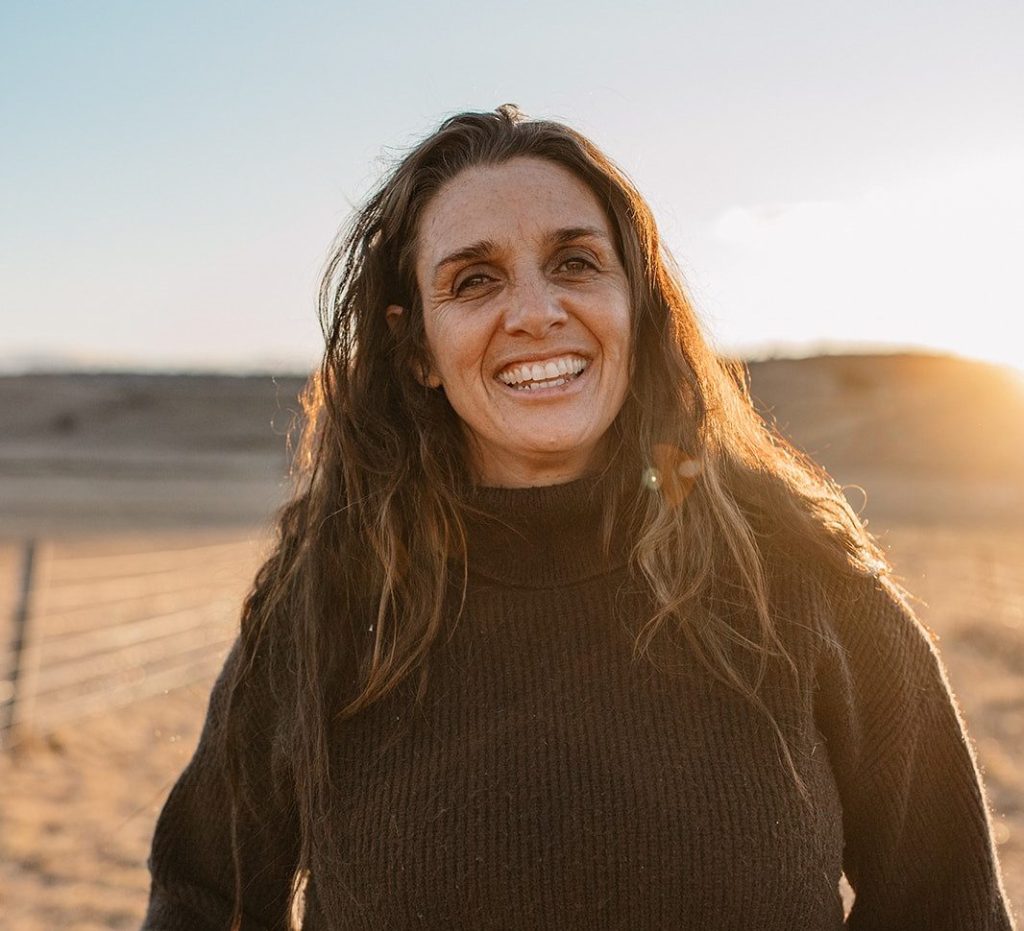
Eliminating the pests that need to be killed, but keeping those that are not harmful, is also a focus.
“Rapidaim is another company we invested in, which is an insect pest detection technology, essentially a device that detects butt wiggles of insects and can tell what kind of insect it is – and therefore give more precise guidance on what and when to spray,” Nolet says.
The Rapidaim founders pitched to the Tenacious team long before they had international distribution. Seeing pitches come to life and solve global problems is enormously rewarding, Nolet says.
“They have commercial pilots in Europe and North America already. So we’re already seeing that the kind of things that we saw on a PowerPoint deck many years ago are now coming true, actually in the real world and including overseas, which is really exciting.”
Decentralising agtech
Another trend that the fast-talking, dynamic VC is seeing, is a move toward decentralised agtech.
An example is a Tenacious portfolio company called Jupiter Ionics that was spun out of Monash University and specialises in decentralised green ammonia production.
“They take air, water and renewable energy and they make fertiliser, and they can do that on a really small scale,” Nolet explains.
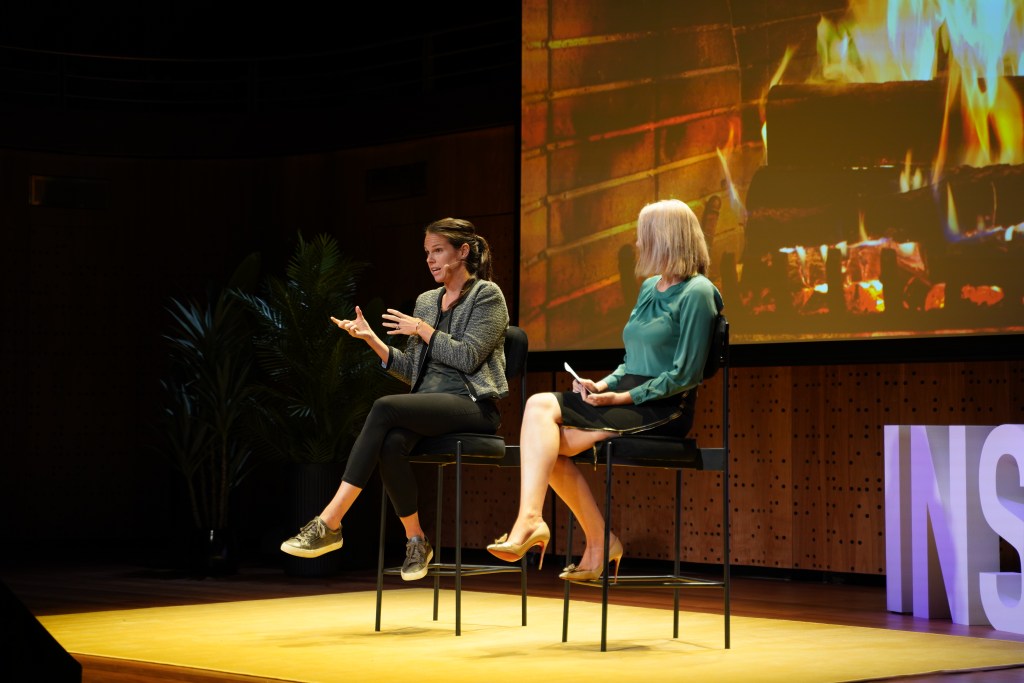
“So instead of having a large multi-million dollar facility that’s highly capital intensive, highly emitting, and only in one place, farmers in a regional town in Australia can own their own cooperative infrastructure, to produce their own fertiliser and power their tractors.”
This enables farmers to be more self-sufficient and prudent with their capital. It also means they are less reliant on corporations to provide the infrastructure they need.
“So you start to sort of change the economics, change the business model by opening up these kind of technology-enabled new paths,” Nolet says.
It also enables more diverse farmers and agtech entrepreneurs to enter the market.
“Founders might be farmers who are in their forties that have lived this problem. Or neurodiverse individuals that look at problems completely differently. Or, you know, Olympia Yarger from Goterra, who’s in her forties and has tattoos. When things look really new and different, who’s going to fund them? Who’s willing to take the bets on founders that look or talk or think differently?” asks Nolet.
And that she says is a part of what inspires her to push forward in funding agtech in this vast sunburnt country.
“I never thought I would end up as an Agtech investor in Australia. Americans do not take gap years harvesting tomatoes and living on farms,” says Nolet in closing.
“If we keep applying the same templates for investing that we always have, we’re going to get the same results. That’s where I take a lot of excitement – in seeing the kind of crop of founders come through who think, look, act, are different. And I think that’s really what we need.”
Are you – or is someone you know -creating the next Afterpay or Canva? Nominations are open for Forbes Australia’s first 30 under 30 list. Entries close midnight, July 15, 2024.
Look back on the week that was with hand-picked articles from Australia and around the world. Sign up to the Forbes Australia newsletter here or become a member here.
